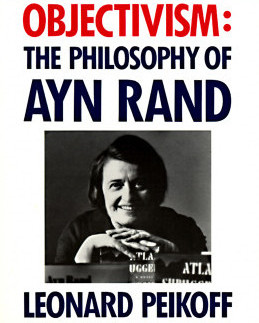An excerpt from chapter 4 on Objectivity from Objectivism: The Philosophy of Ayn Rand by Leonard Peikoff.
Let me begin this topic on a familiar note, by recalling a well- known fallacy: quoting a person out of context. This means quoting some statement of his while ignoring other statements that constitute its background and determine its proper interpretation. By this device, one can make a person appear to advocate virtually any idea. Such quoting is fallacious, because men do not write or speak in a vacuum; they do not emit a stream of disconnected sentences, any one of which can stand independent of the rest. To communicate a viewpoint, a man must say many separate things, each relying on the others; the viewpoint is understood only when the listener grasps the relationship among the items and thus the total. To interpret any single remark, therefore, one needs to know: what else did the man say (or presuppose) that conditions his statement? What was the surrounding framework? What is the context?
The necessity of holding the context is not restricted to the use of quotations. Here is a different kind of example, involving the proper use of concepts.
Read the rest in Objectivism: The Philosophy of Ayn Rand.
